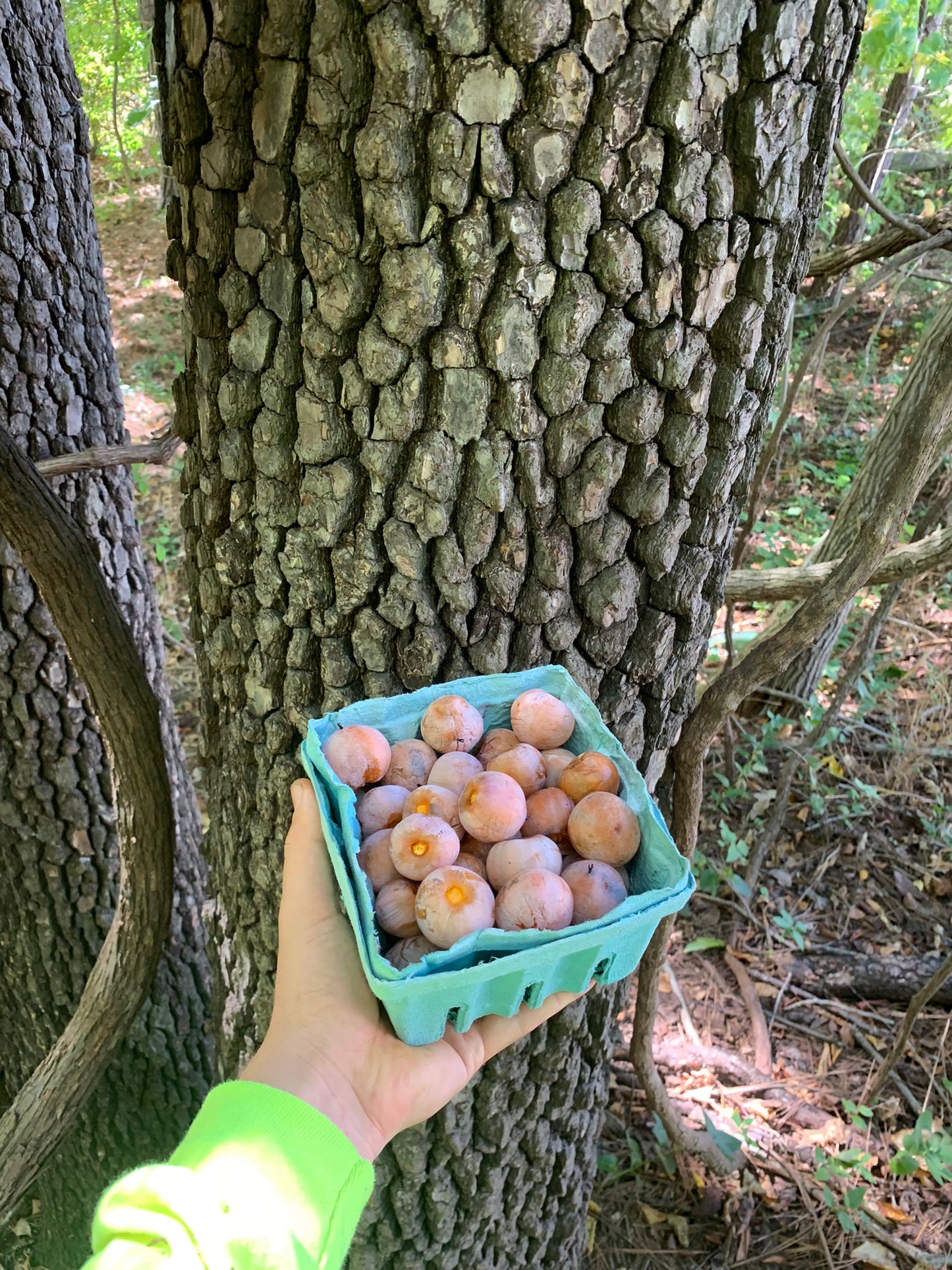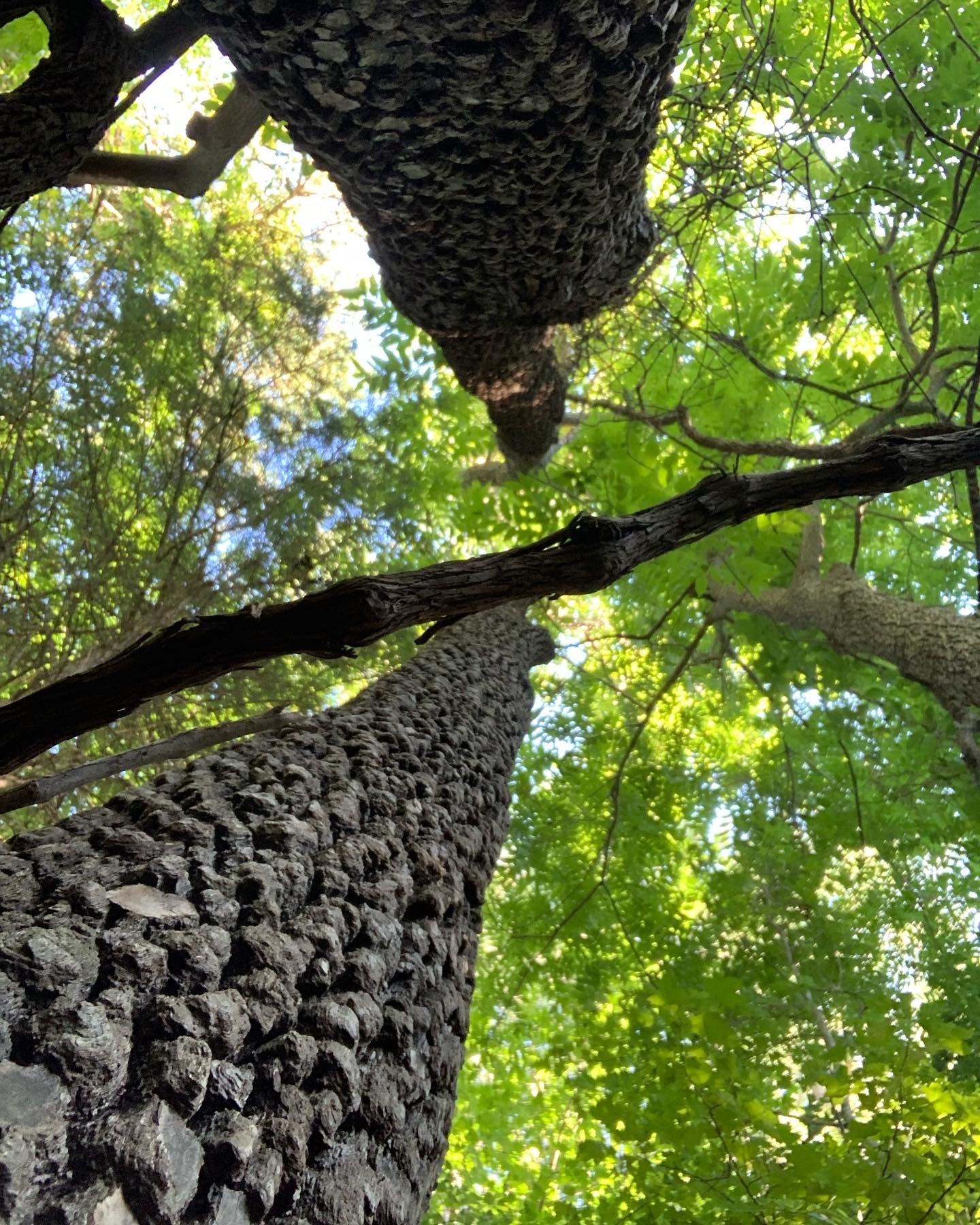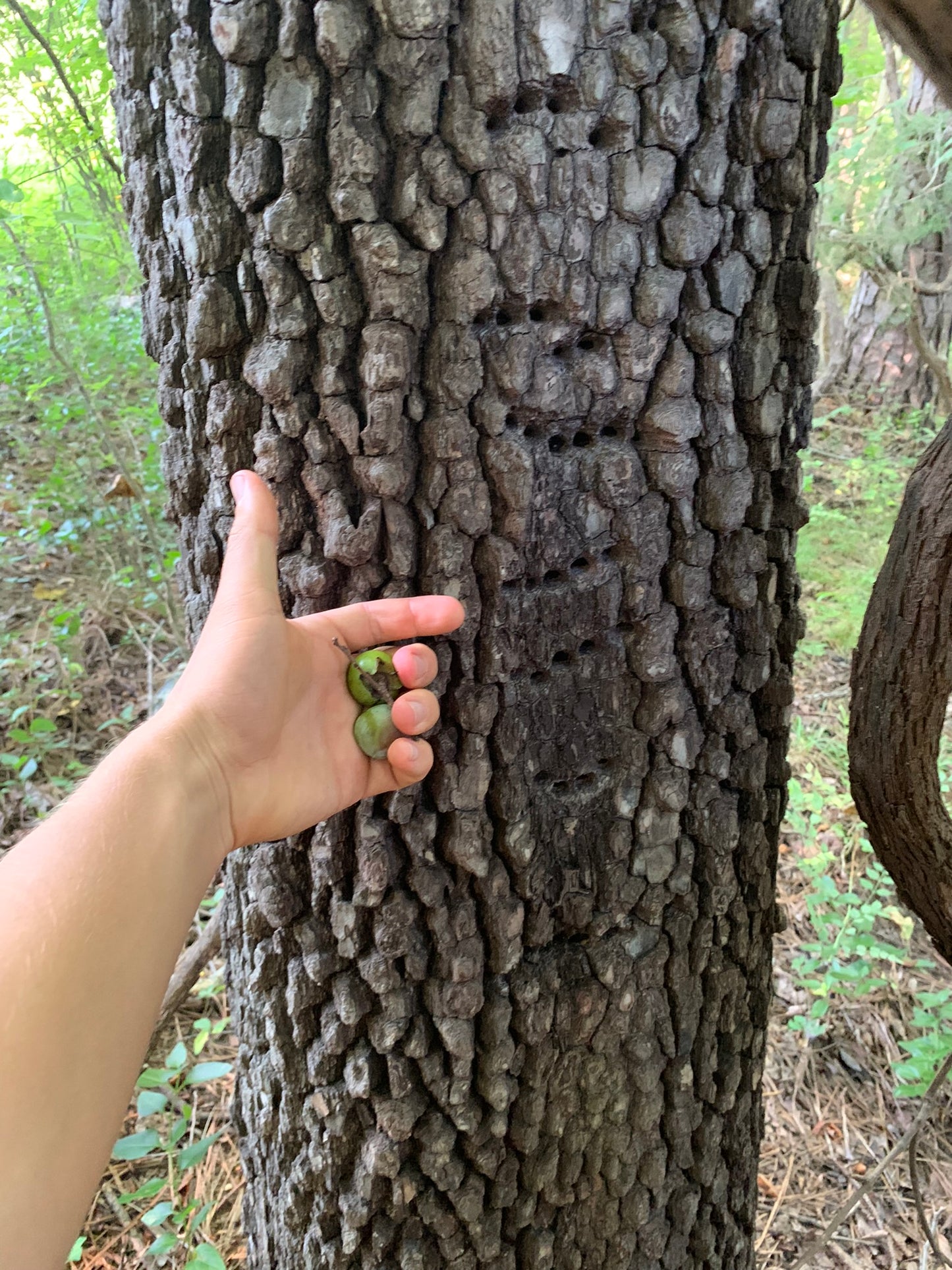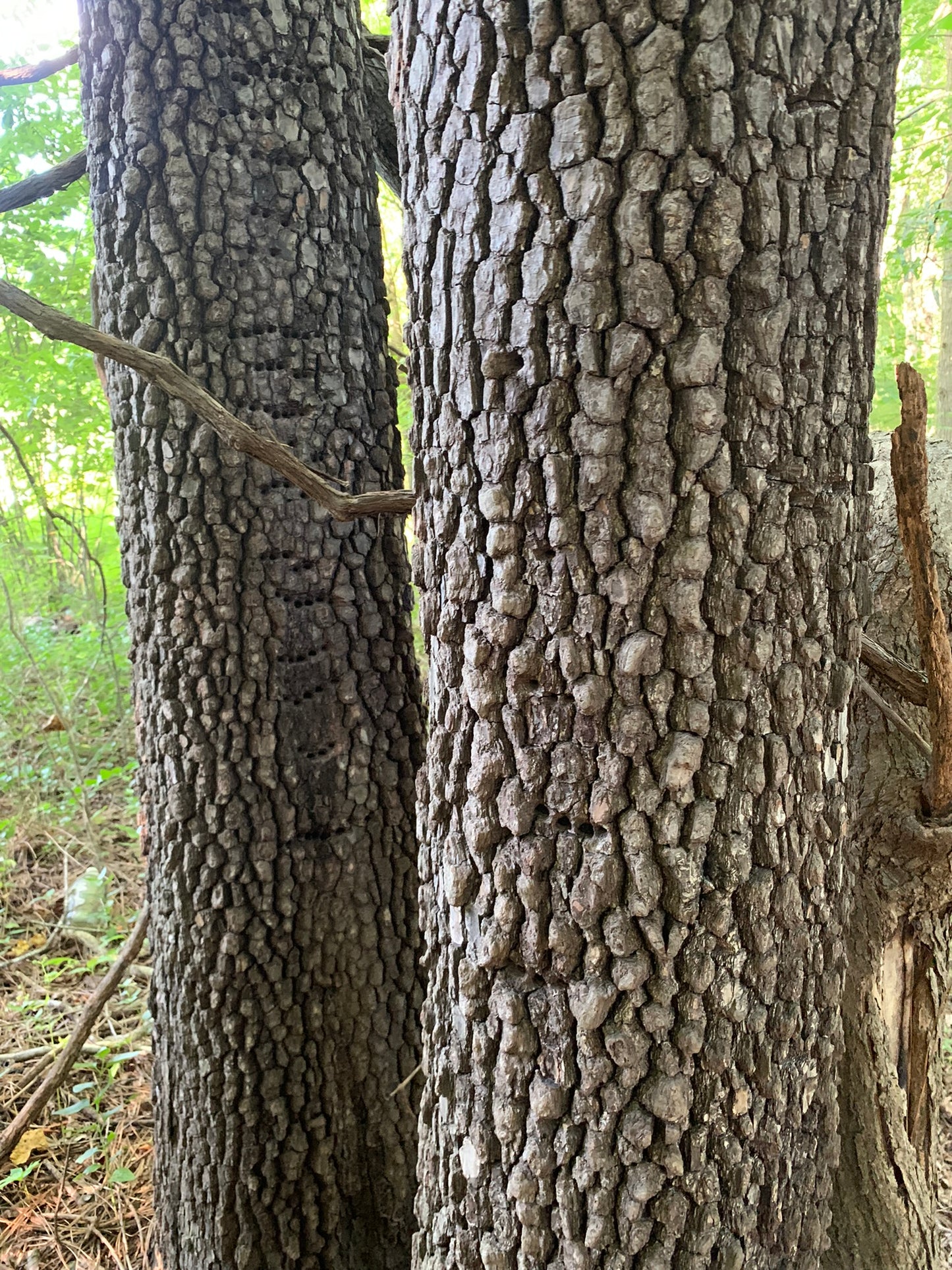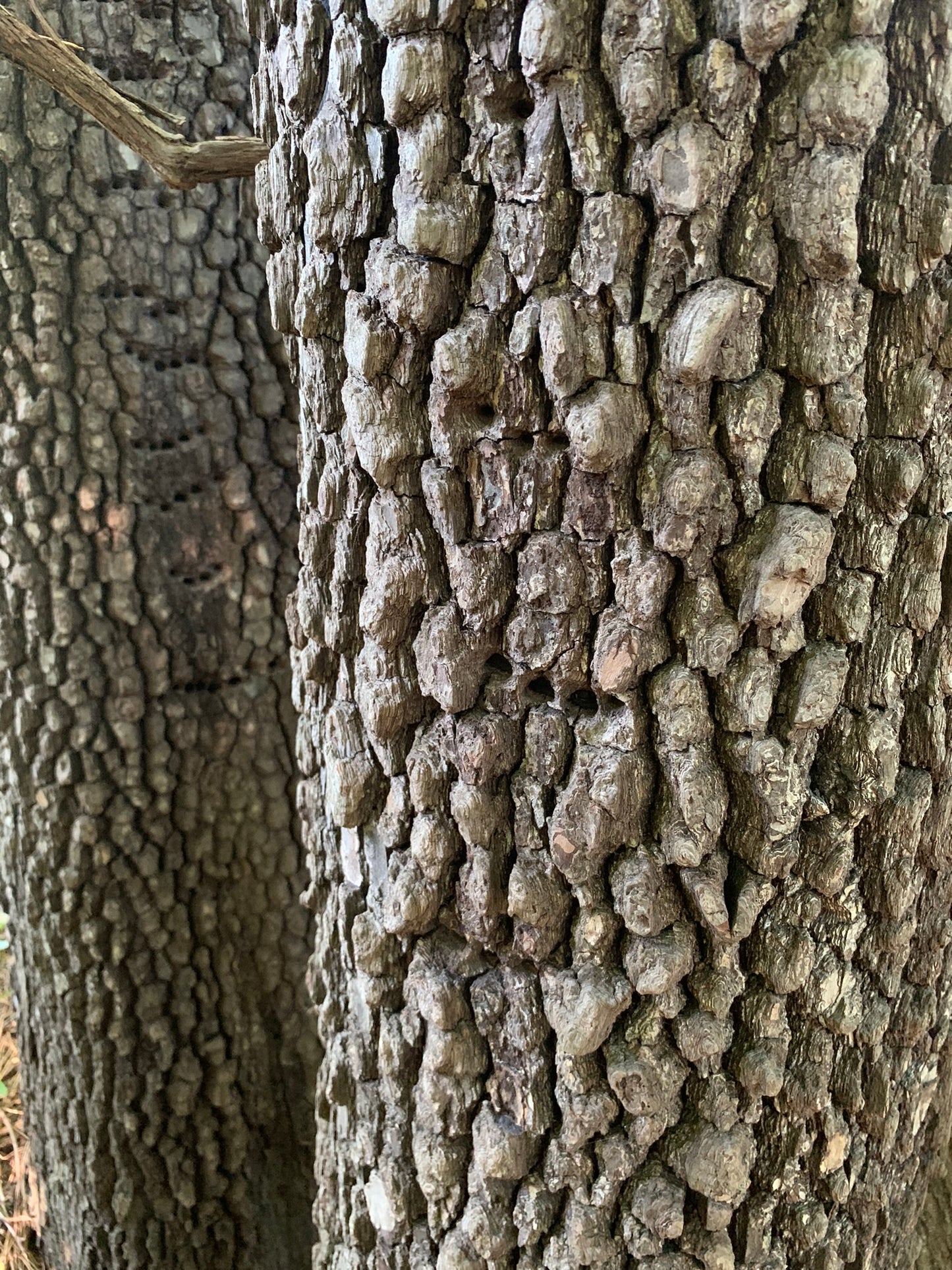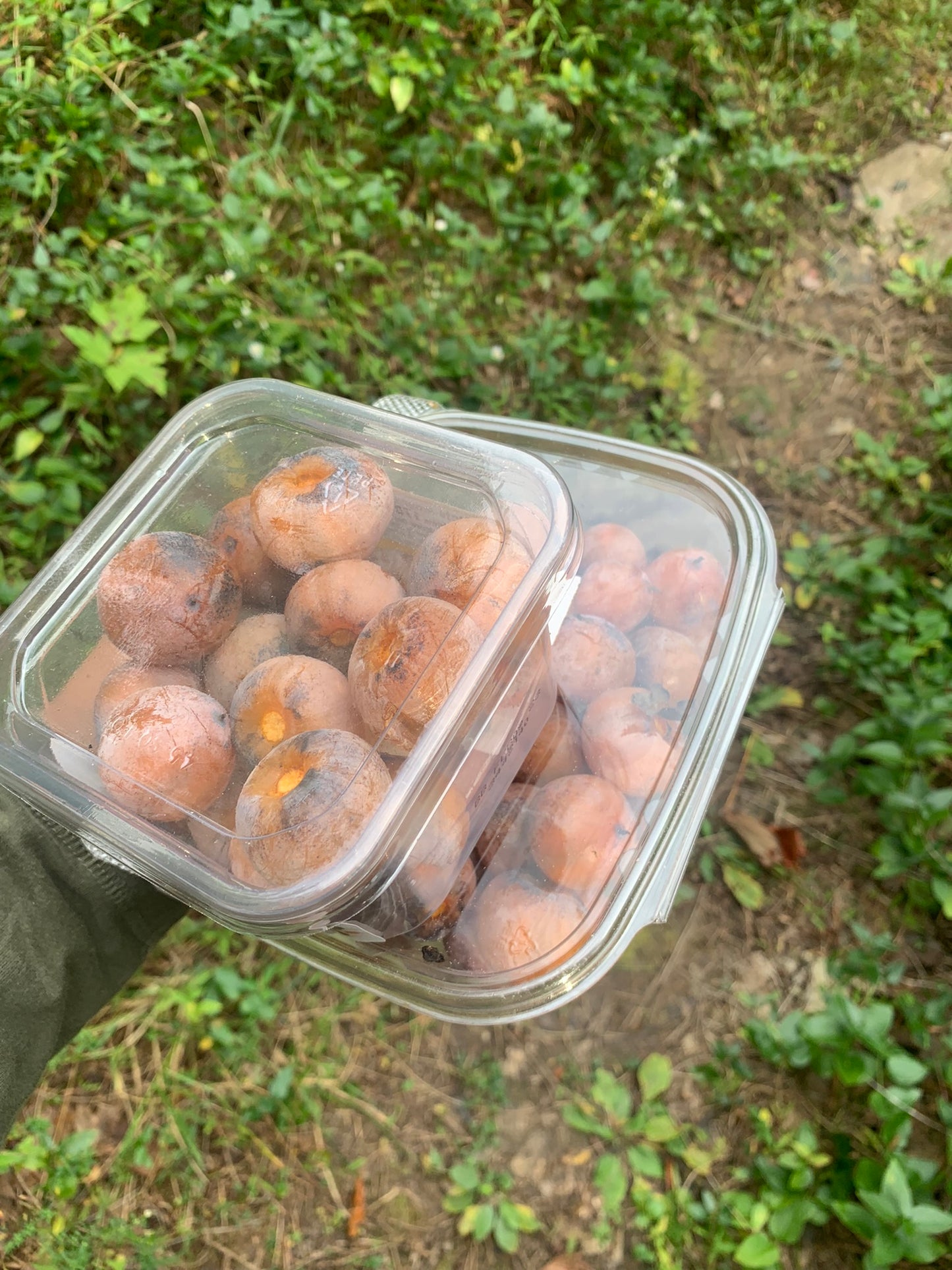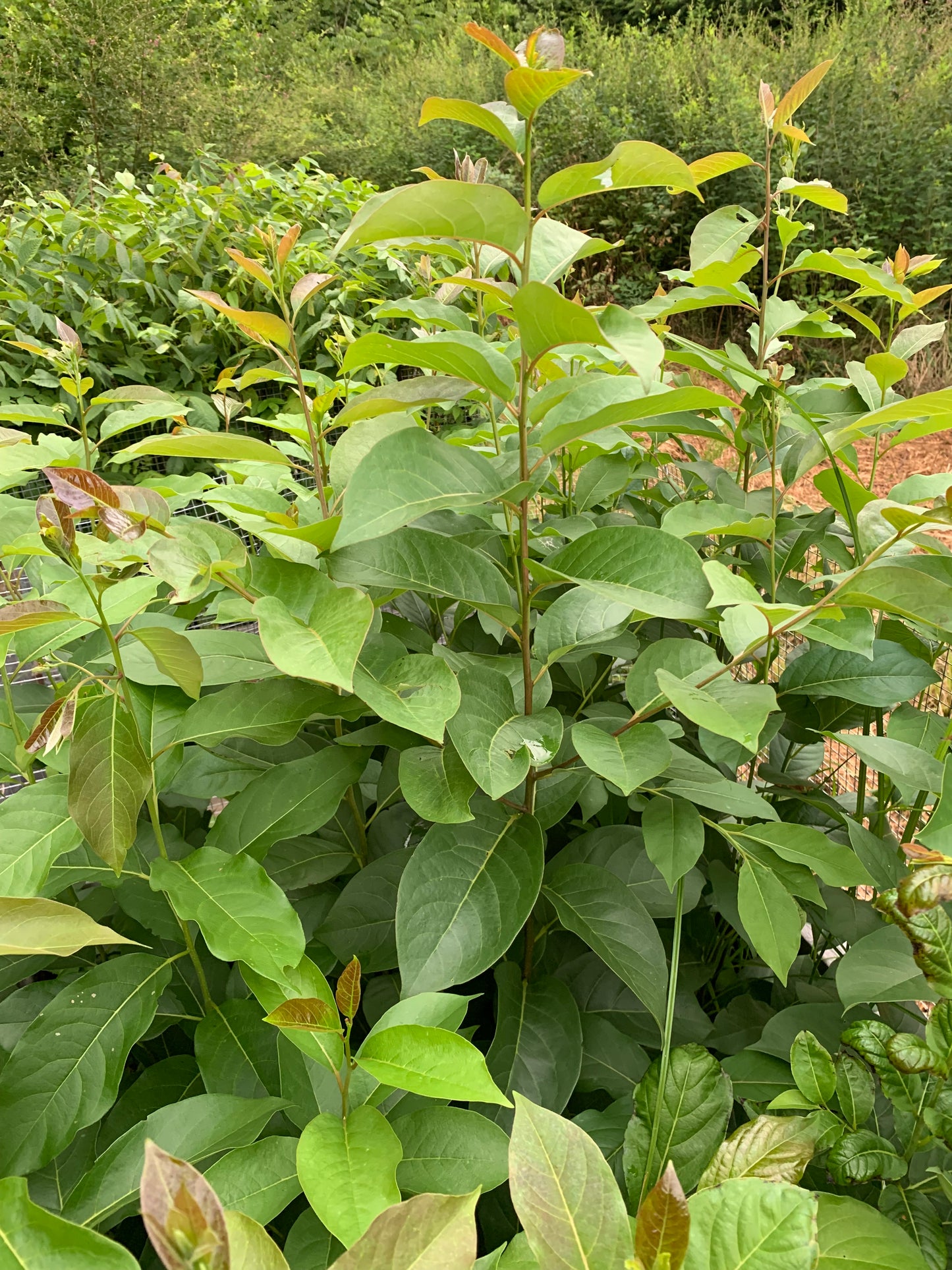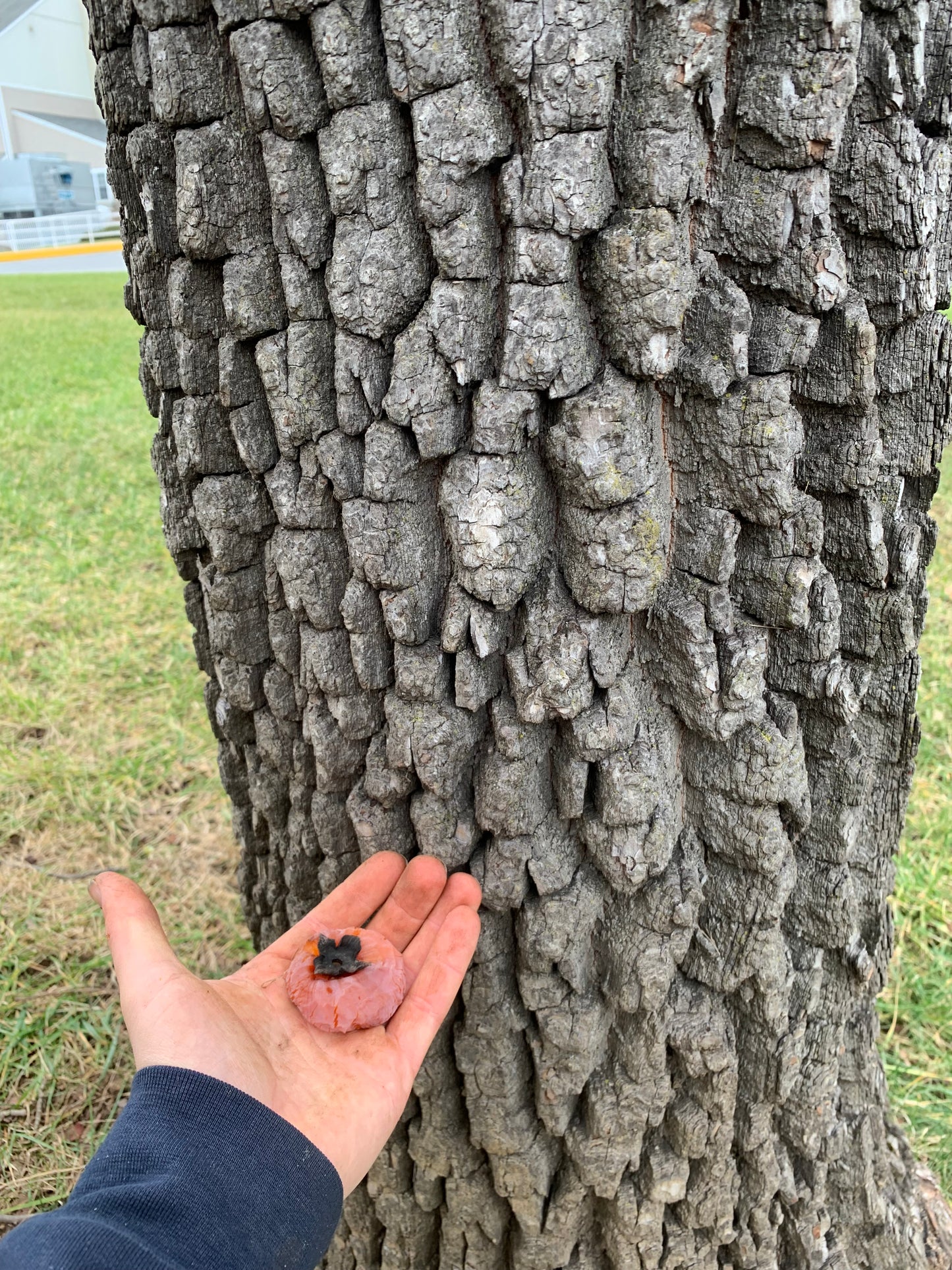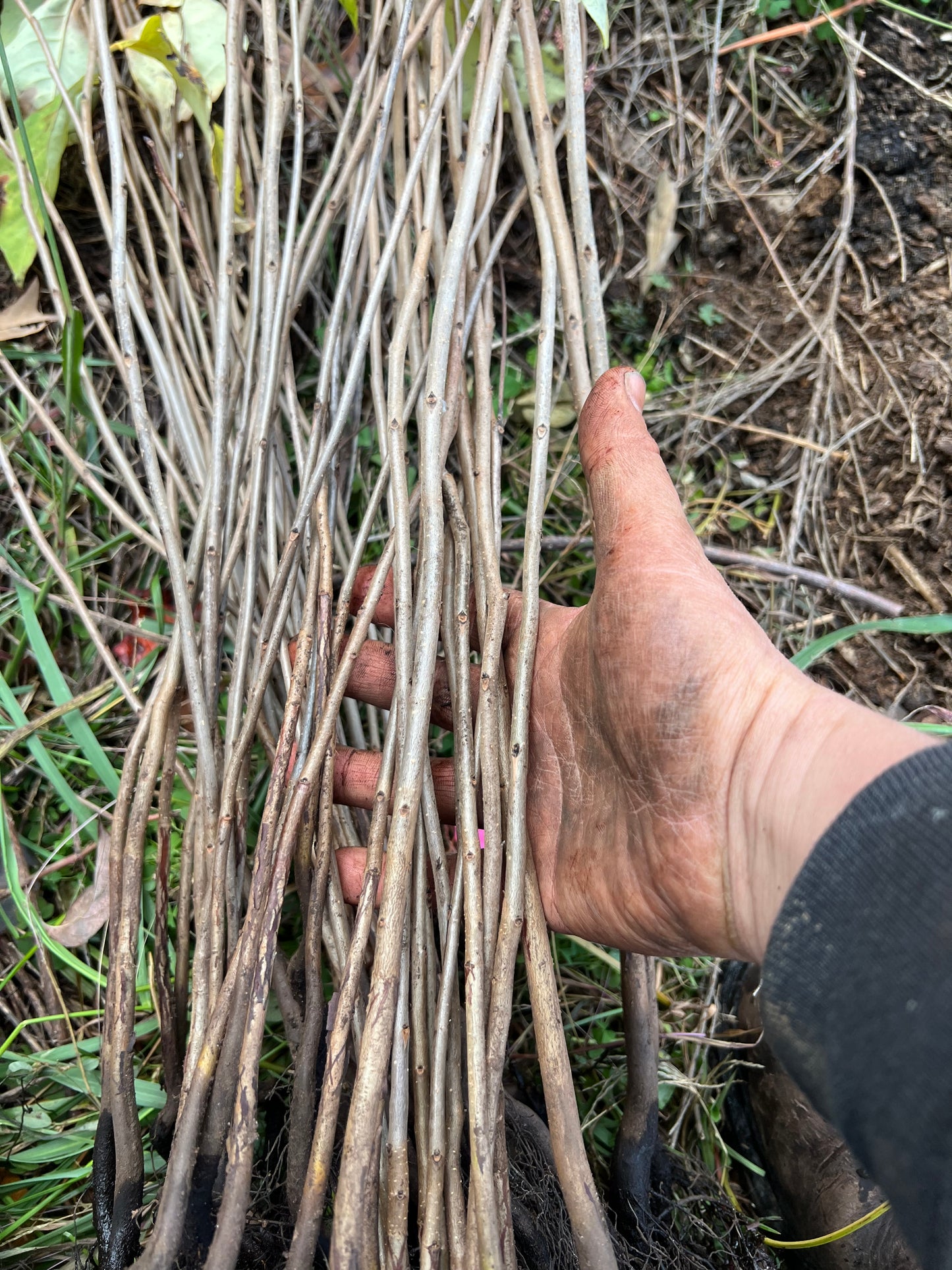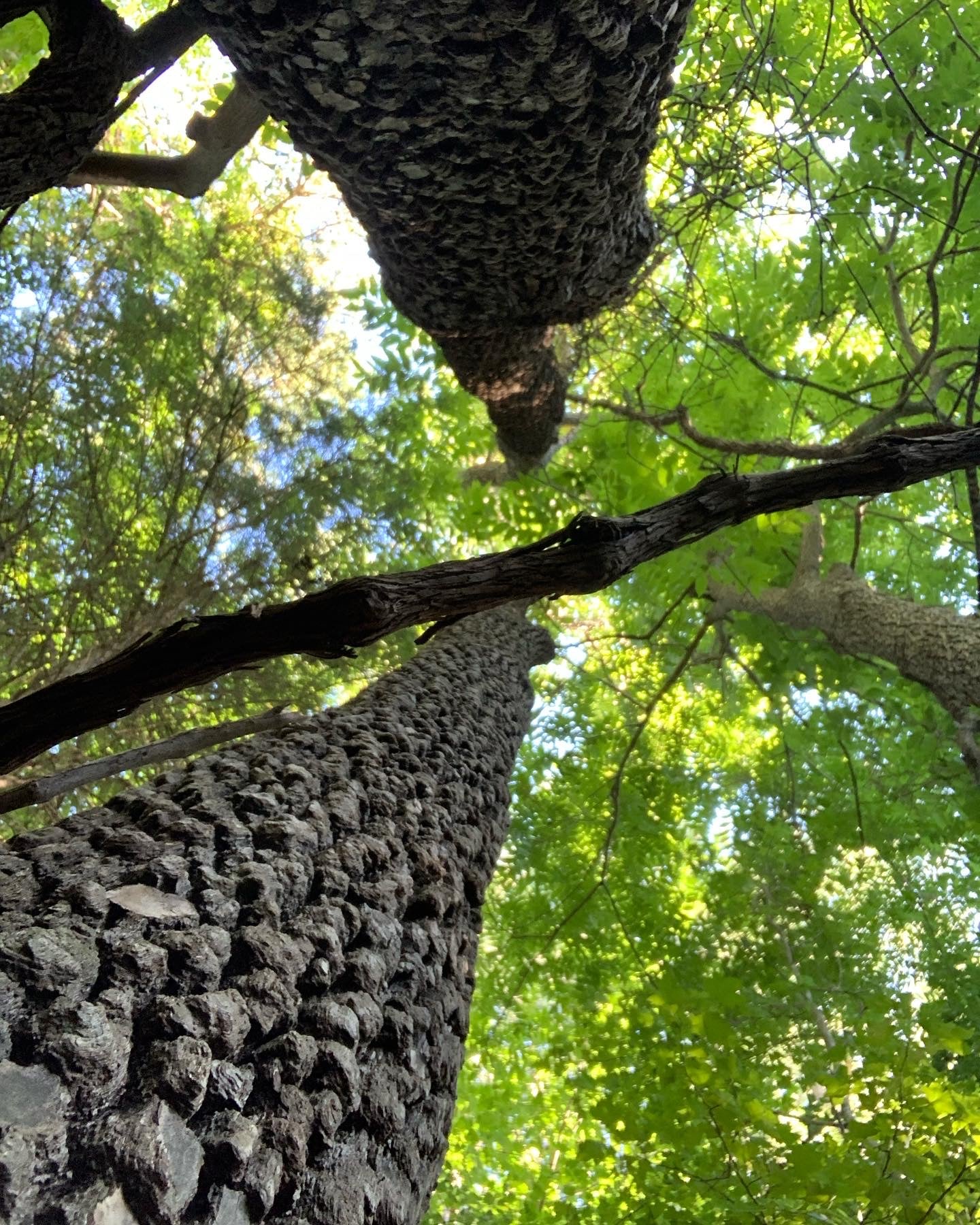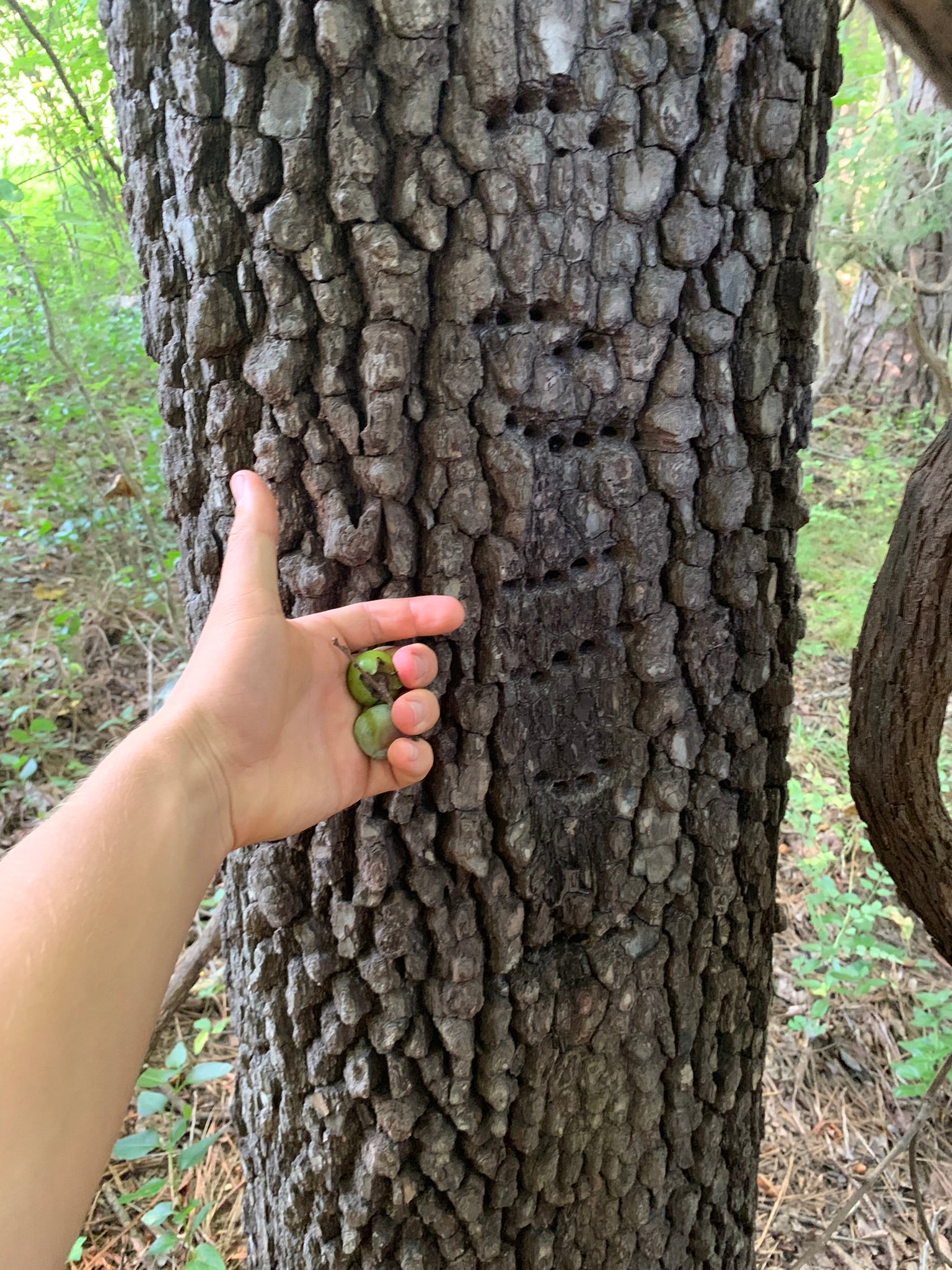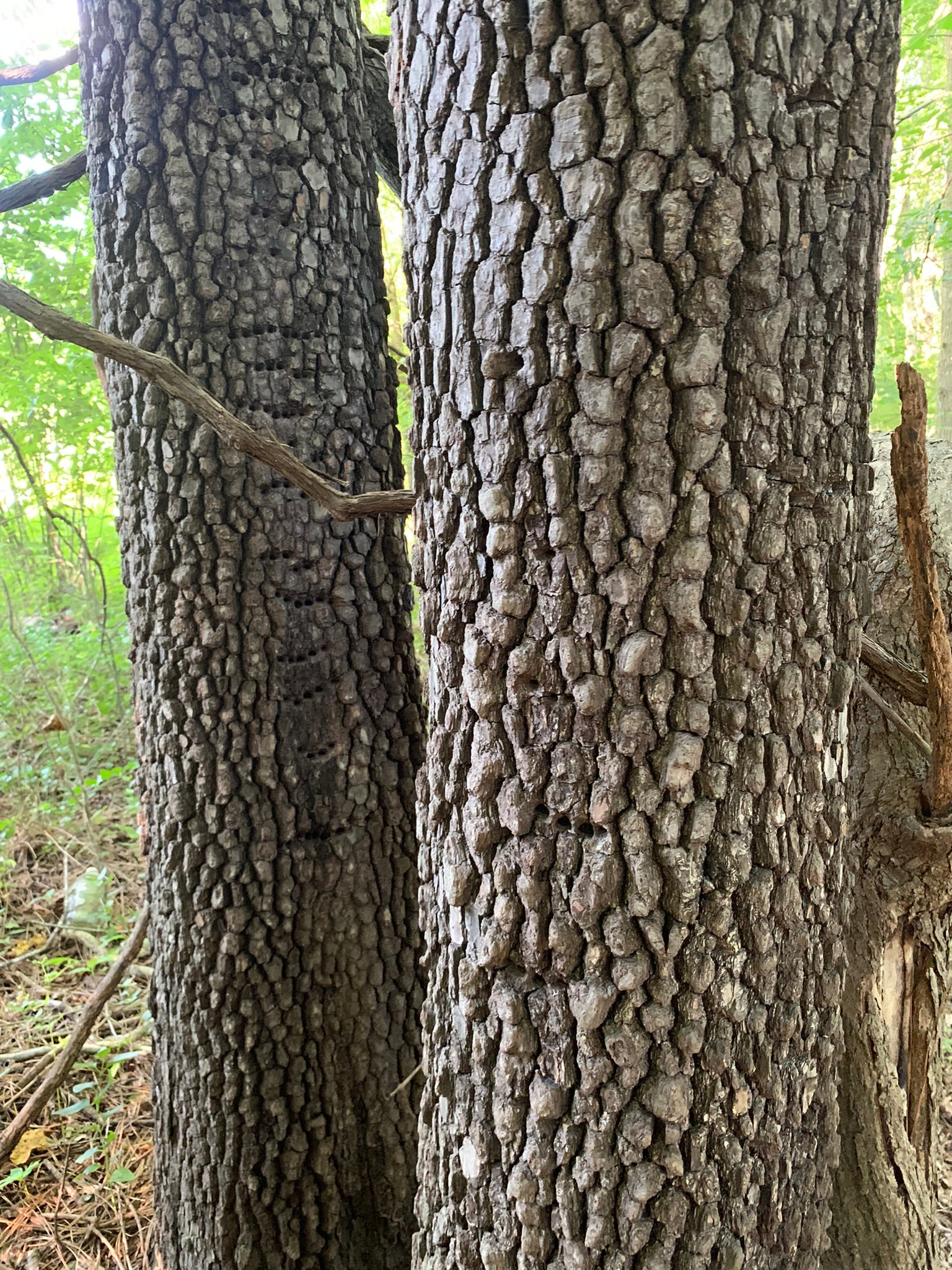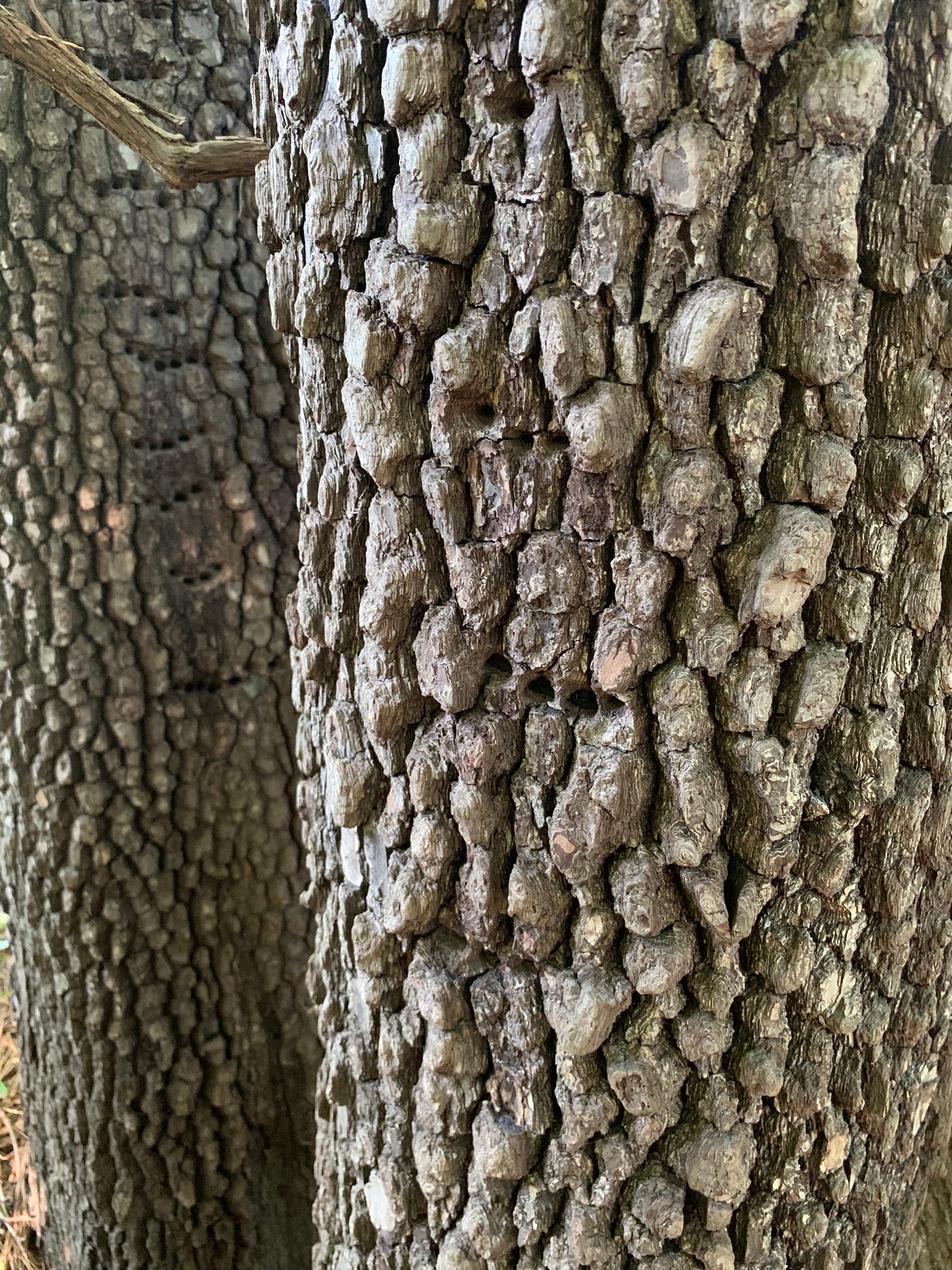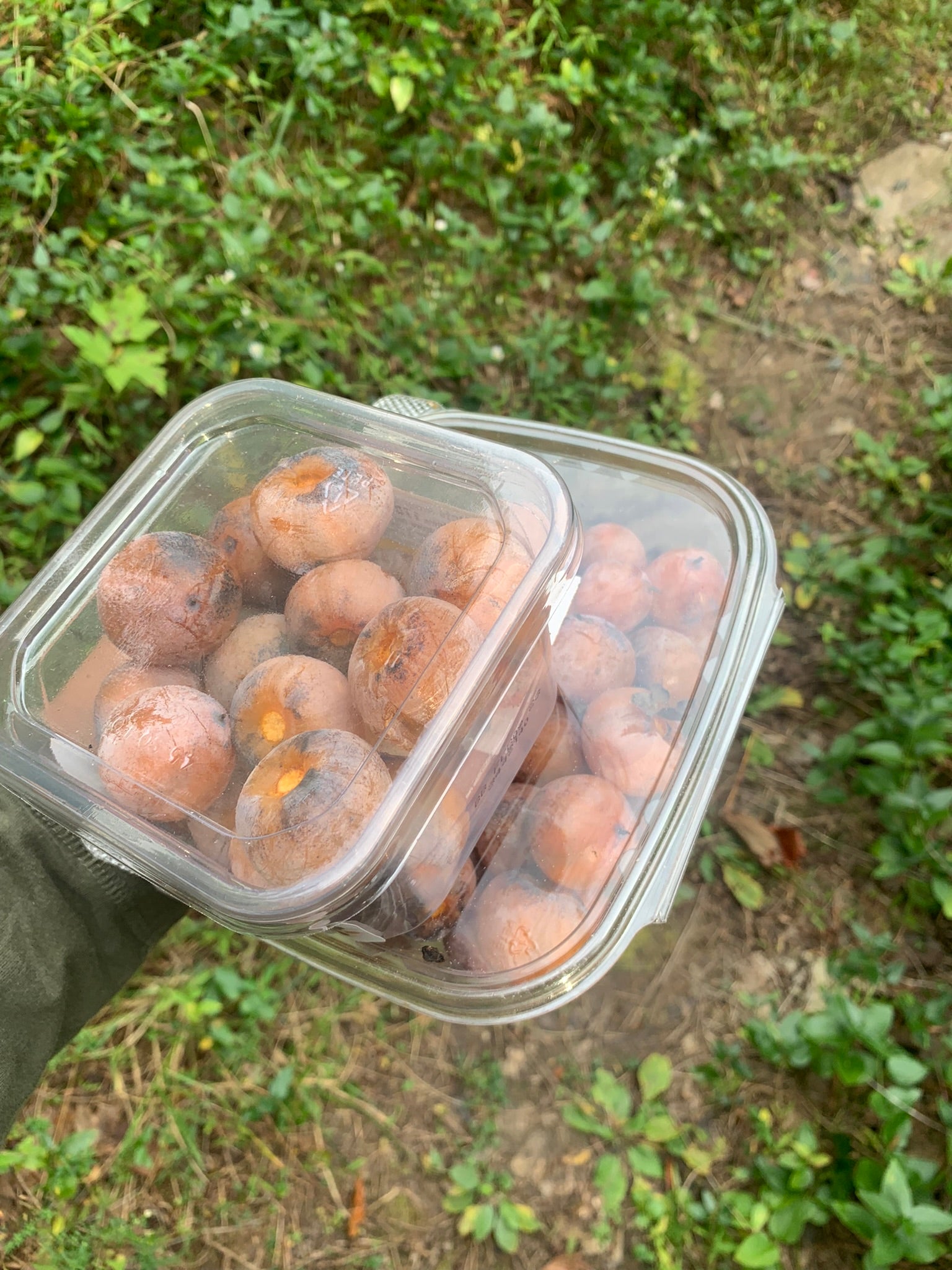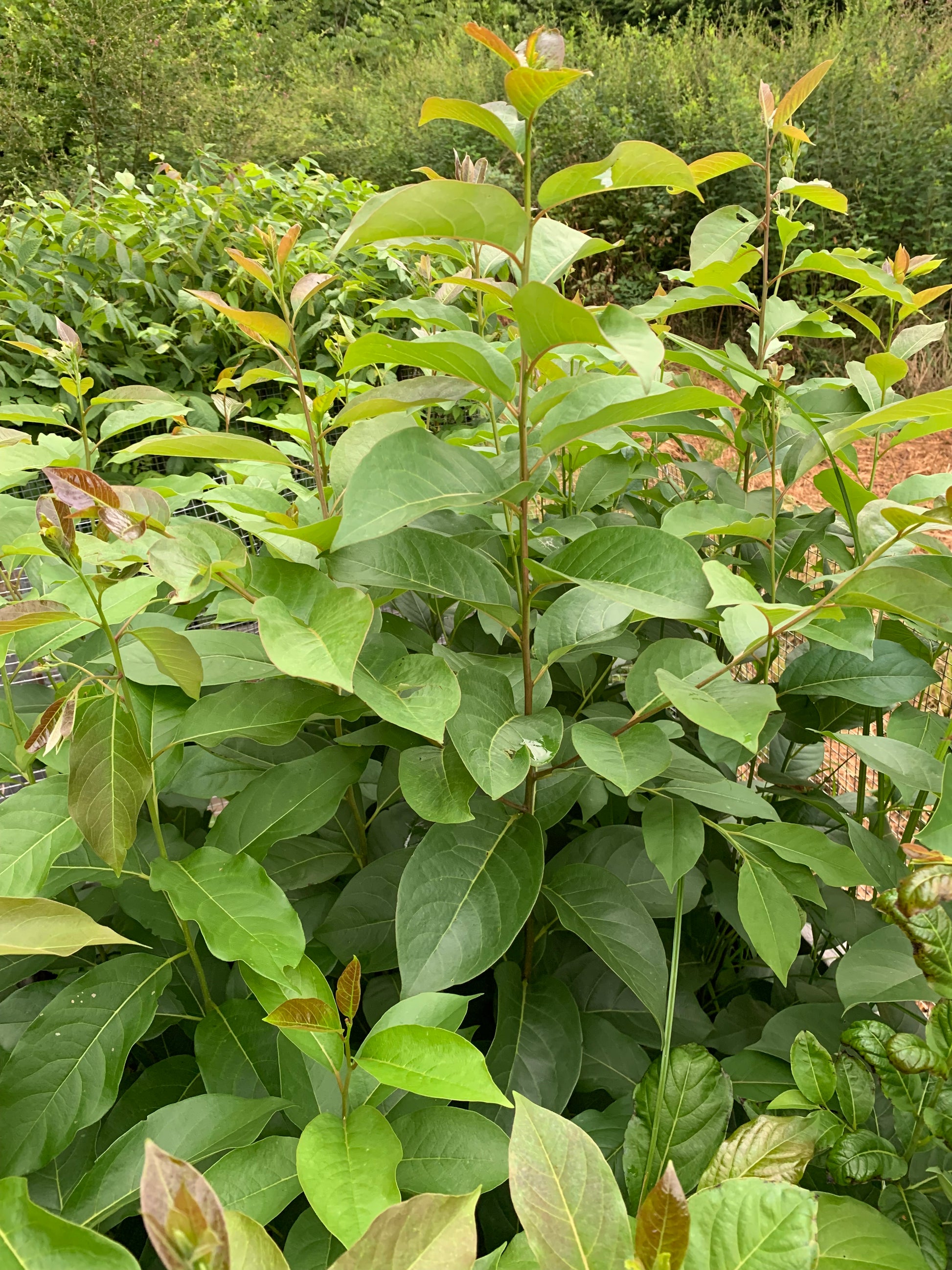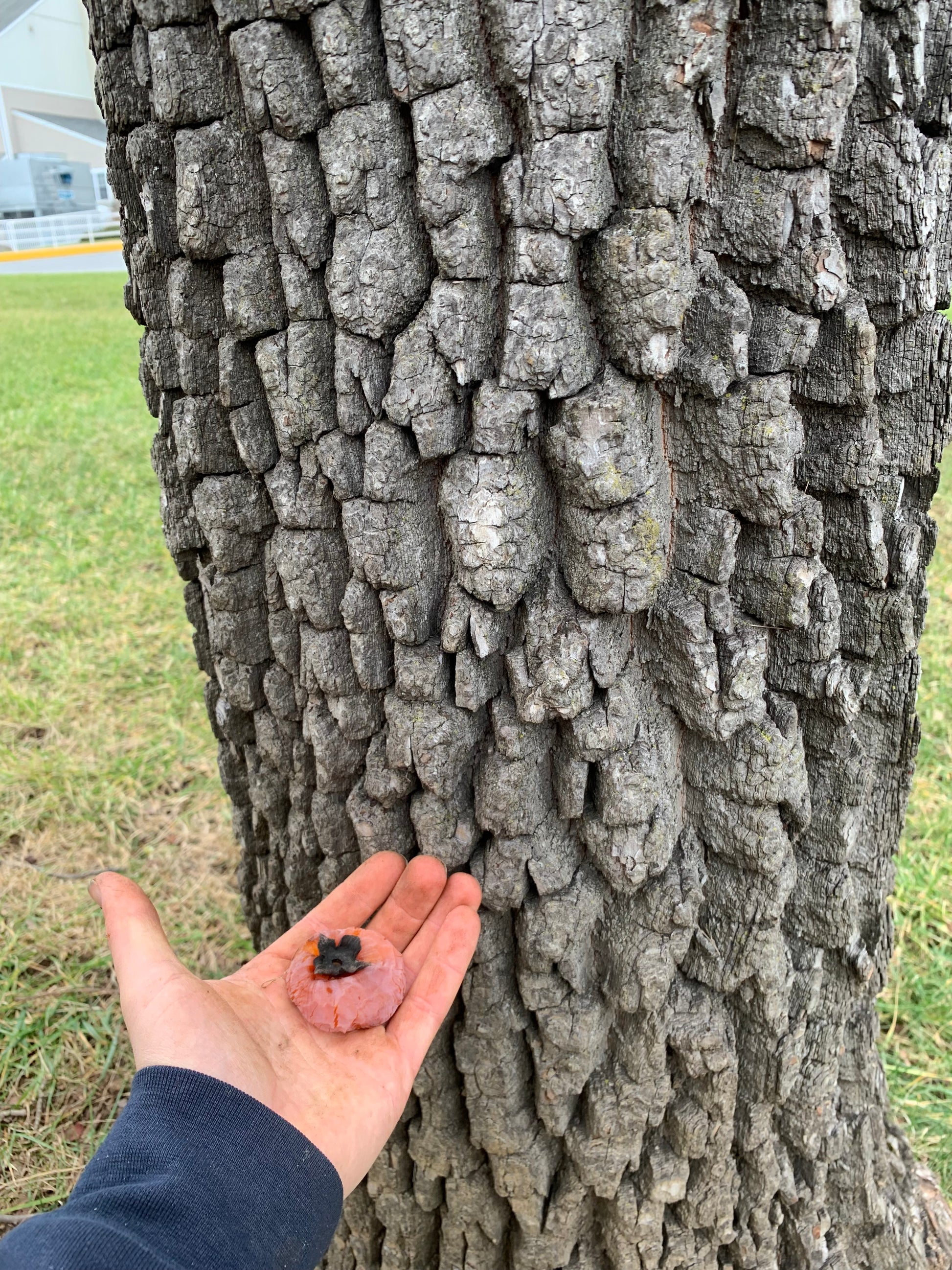Living Soil Tree Farm
American Persimmon
American Persimmon
Couldn't load pickup availability
American persimmon (Diospyros virginiana)
This is a longer one as persimmon are one of my favorite trees to grow and work with.
You may be familiar with the persimmons you find in the grocery stores, a large pinkish orange fruit. The persimmons you find in the grocery store may sometimes be grown in America but they are varieties of persimmon that come from Asia. Asian persimmons are great but we’re here to talk about the American species. The American persimmon is a rather hardy tree adapted to a wide range of environmental conditions. It produces fruit prolifically on an annual basis with minimal care. Many species of wildlife flock to the persimmon when the fruit ripens. Most often you will find these trees growing wild however humans have breed and selected unique varieties over the years for use in managed cultivation. The modern named varieties we have access to only exist because of the deep relationships native people have held with persimmons over 1000s of years which has no doubt been a large factor in shaping the persimmon gene pool of today.
The American persimmon is similar to the Asian in some ways but has some key differences. For one the fruit of American persimmon are much smaller, typically no larger than a golf ball. Asian persimmon trees are typically smaller trees while the American species can reach heights of over 60 feet. Another big difference has to do with what is called astringency. Astringency is that puckered up dry mouth feeling you get when you taste an unripe persimmon. Other food can have this effect as well, typically things with high levels of tannins.
There are astringent and non astringent Asian persimmons but the American species are only known to be the astringent type. Once ripe all persimmon fruits lose astringency entirely. A "non" astringent" persimmon just means that the fruit does not have astringency in its unripe state. You can buy an Asian persimmon in the store that is firm (not totally ripe) but tasty and not astringent at all. You do not want to eat a firm American persimmon. The American varieties lose that astringency when they are ripe and there are some Asian varieties that behave this way as well. When persimmons are fully ripe they are soft to the touch. They are very gooey by the time they are fully ripe. This makes the American persimmon very difficult to ship and is a large reason why they are not found in the grocery store.
You may have heard that persimmons are astringent until after the first frost. What we have found is that many trees do not adhere to this common advice. The best way to avoid astringent persimmons is to only eat the soft fruits that have already fallen to the ground. Persimmons tend to fall off the tree when they are at peak ripeness. All that said in colder climates the fruits do often hang on the tree into winter. Sometimes you can shake a smaller tree or branch and get the ripe persimmons to fall off. On occasion a gnarly storm can knock unripe fruit to the ground.
Most American persimmons also have seeds whereas many Asian varieties sold in stores typically do not. Keep in mind that the variety grown and the proximity of male trees nearby can affect how many (if any) seeds are present in the fruit. Persimmon do not seem to adhere to a strict set of pollination rules. Generally, the American persimmon acts in a dioecious manner, producing “male” or “female” flowers on separate trees. Some trees have been shown to produce both types of flowers. Some varieties can produce fruit without male pollination but, will not produce seeds without male pollen. It also seems that wild seed sources tend to produce more male trees than females. The number the seeds per fruit, quality of fruit, size of fruit, and productivity will vary widely between different trees. Wild persimmons have a lot of genetic diversity.
Our favorite way to approach American persimmon is to plant seedlings and allow them to start producing flowers. The males that show up can then be grafted over to named cultivars if you wish. The females we like to allow time to produce fruit so that we can evaluate the quality. Sometimes seedlings produce great fruit. If they do not make quality fruit then those trees can also be grafted. Field grafting established American Persimmon works great and leads to fast fruit production. This works best on trees smaller than 4" diameter at the graft location. By the time a seedling reaches this size it has usually flowered and fruited already, allowing you to evaluate it.
American persimmon can handle dry soils and wetland areas but will do the best in well drained fertile soil with adequate moisture levels. In our experience established persimmon trees are some of the most reliable fruit producers in this climate. In drought years and flood years there is almost always a good crop. As with all trees mulch is your best friend when establishing a new planting.
Let us know if you find any trees with superior characteristics, especially if you live in the southeast! We would love to swap seed. Additionally we’d love to hear about any persimmon recipes you try ! Persimmons puddings and jams are common traditions in our part of the world. I (Nick) really love to freeze whole persimmons so that I can extend the season into late winter. If you are trying to cook with persimmon or if you just don't like the seeds/skin an old fashioned food mill does is an amazing tool for processing persimmon pulp. My family has a long history of making persimmon pudding in the fall. If you haven't tried persimmon pudding you are missing out!
Last note! Persimmons are slow growing and therefore not often used as lumber but their wood is amazing. It is hard, beautiful, and also makes good firewood. We like to save nice chunks for wood working and burn small branches as firewood.
2025 selections:
Breeding Mix
Our breeding mix for 2025 comes from a wide range of improved persimmon genetics. Some seed came from Englands Orchard where there are dozens and dozens of named and not yet named persimmon varieties (both American and Asian). We also collected seed from named persimmons several back yard orchards with grafted trees and lots of seed from John Hershey's nursery. roughly 90% of the seed came from Hershey and England's orchards. John Hershey's nursery is very old having been established between the 1920s and 1950s in Downingtown PA. Many of the trees have tragically been cut down for suburban sprawl but some remain. John was known to travel far and wide in search of the best persimmons and his trees are truly inspiring. All of the trees that contributed seed to this selection make larger than average fruits of great taste.
Wild
These seedlings came from seed gathered under wild trees in NC and VA. Their fruit ranged from small to medium size. These persimmons would be great for ecological plantings.
2024 selections:
Feralwood breeders mix BARE ROOT SEEDLINGS
This seed came from Feralwood nursery out of western NC. If you aren't familiar with their work we can not recommend them enough! Seriously go check them out. Feralwood grows high quality plants from valuable genetic populations with lots of love! You can find them online here: https://ardealandproject.com/feralwood-nursery
The seed for this mix came from the breeding orchards of Jerry Lehman and Donald Compton (Hobo Woods). Both of these orchards contain dozens of cultivar quality American persimmon varieties including named varieties and unnamed crosses.
These trees are roughly 1 foot tall or taller
2024 Mix BARE ROOT SEEDLINGS
Our mixed seed this year was collected from many different trees throughout Durham, Raleigh, and Hillsborough NC. All trees were grown wild and fruit size ranged from small to large. Some of the mother trees are tall and old while others are much younger.
These trees are roughly 2 feet tall
Holiday BARE ROOT SEEDLINGS
"Holiday" is named after the closest road to the tree (not an official registered name this is just what we are using to differentiate it in our seed storage). Holiday is a very large tree almost 10” in diameter at breast height. It has two stems both about 10” and growing in a wooded area between apartments and a busy road. The fruits are almost golf ball sized and delicious. In 2022 the amount of fruit was crazy. As far as we know it is a wild tree however this area supposedly used to be farmland before the apartments were built so it is possible this tree was planted by a farmer years ago and abandoned. This tree is also growing very close to ancient trade routes through Hillsborough dating back long before the arrival of Europeans. It is very possible this tree is a remnant selection from indigenous management.
John Hershey Selection BARE ROOT SEEDLINGS
During the mid 1900s John Hershey made his career growing and grafting many types of trees native to the east coast and midwest. One of those was persimmon. John collected superior selections from all across the country and brought them to his farm in PA to propagate further. Though much of his farm has now been lost to development pieces of it remain and a good number of persimmon trees are still standing. These trees drop larger than average fruit and the trees have stood the test of time. These are hardy trees with excellent quality fruit. There are very few places where you can find so many different high quality persimmon varieties growing in one place. If you want to do persimmon breeding work one of the best ways to start is with seed from an orchard such as John's. Most of our seed for this batch came from the persimmon trees across from the Quaker Meeting House in Downingtown PA. We also planted some seed collected at the Hershey site by Buzz Fervor.
These trees are roughly 2 feet tall
Linwood Selection BARE ROOT SEEDLINGS
Our good friend Linwood has been growing persimmon for a number of years at his home orchard near Raleigh NC. This year Linwood gave us some seed from his best trees to grow out. Most of the trees in the orchard are varieties of "northern" persimmon. There are two different populations of American persimmon. One that originated in the north and one in the south (this is a simplification. if you want to really nerd out on persimmons we recommend listening to the podcast Perennial AF episode 'persimmon folklore'). Most selected varieties of American persimmon come from the northern population. Linwood planted many named northern cultivars as well as several southern seedlings. One of these southern trees is a star performer on an annual basis. This tree produces large quantities of medium sized fruit with great taste. Of the northern cultivars Linwood has Prok, Meader, and Yates among a few others. Most of our seedlings from Linwood came from his southern variety however some of the northern varieties contributed seed to this selection as well. Note that common understanding at this moment in time is that northern and southern persimmons are unable to breed with one another.
These trees are roughly 1 foot tall or taller
Potted selection
These persimmon came from seeds offered by Feralwood nursery and Perfect Circle Farm. The parents of these trees are of cultivar quality. They have been grown in small fabric pots less than 3/4 gallon in size. The trees are almost two feet tall. For local pickup only.
Potted option for local pickup only, bare root option can ship anytime October-March. Our potted selection this year came from Feralwood and John Hershey seed sources
Once you order a potted plant we will reach out to coordinate a pick up time. We can offer pickups in Bassett VA, Blacksburg VA, and Hillsborough NC. Reach out if you have questions about potted plant delivery.
Materials
Materials
Shipping & Returns
Shipping & Returns
Dimensions
Dimensions
Care Instructions
Care Instructions
